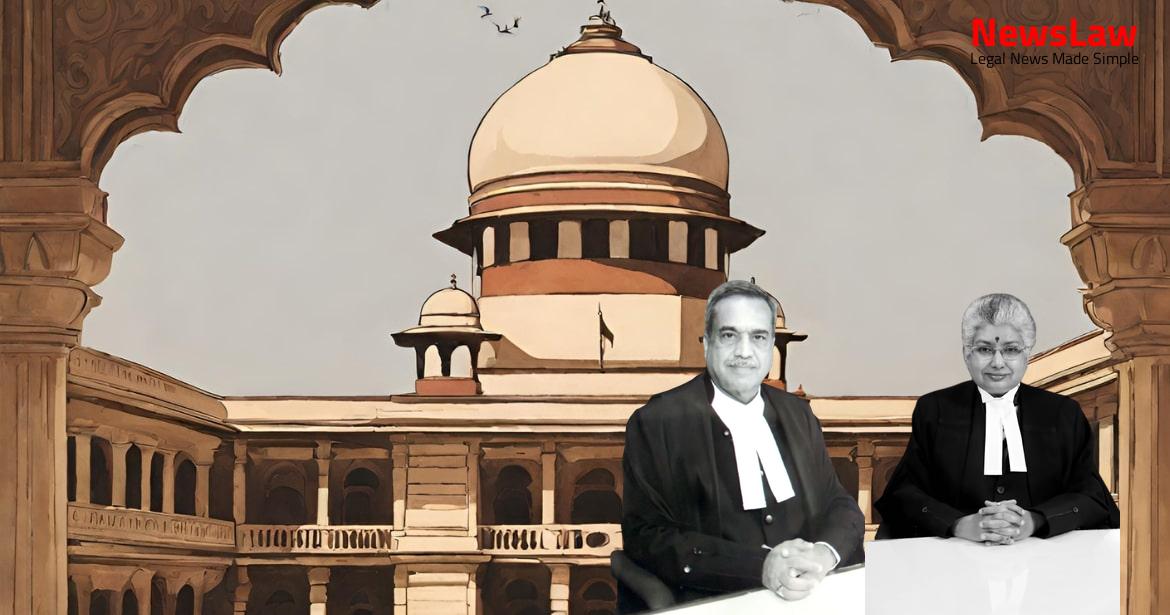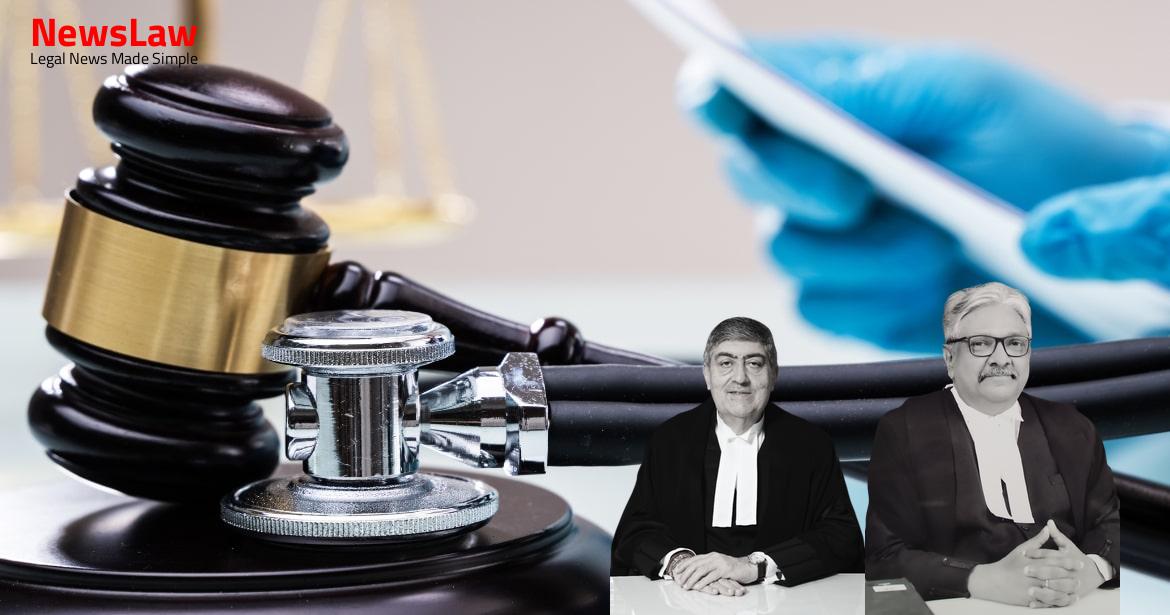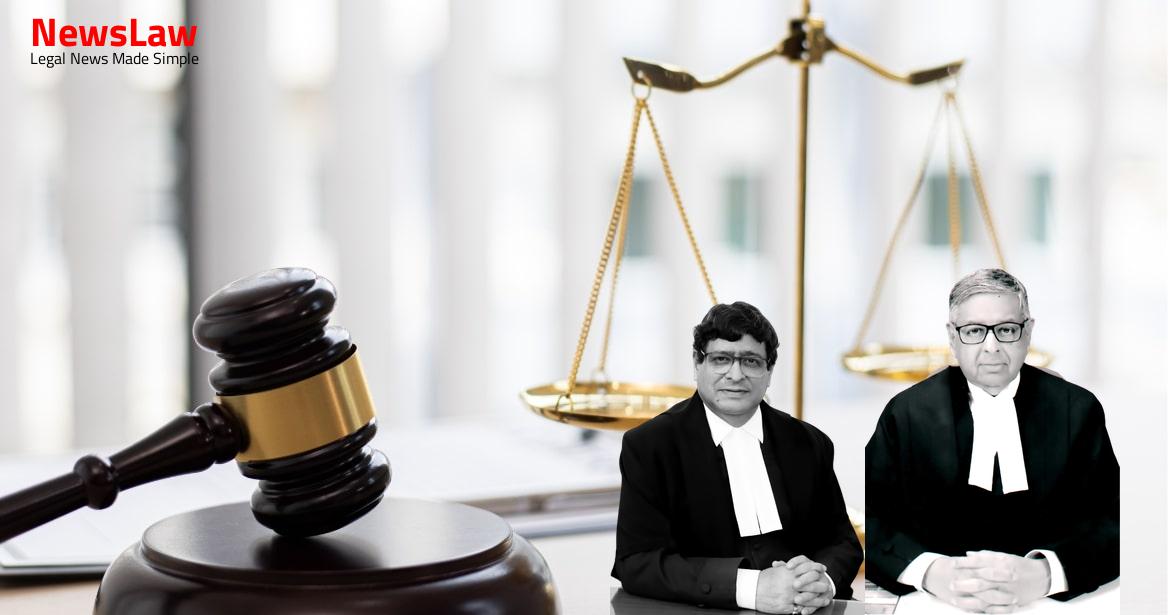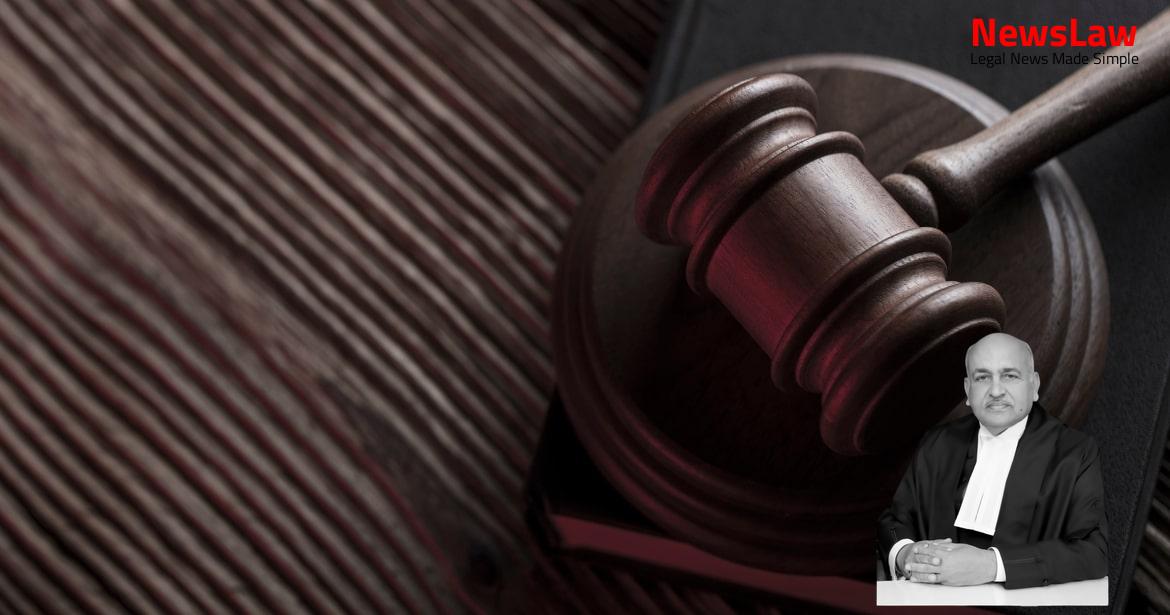Facts
- The appellant has filed appeals against the High Court’s decision to set aside the judgment of conviction and the order of sentence passed by the Fast Track Court.
- The Fast Track Court convicted and sentenced the respondents to death, but the High Court acquitted all the accused by allowing the appeals.
- Upendra Ram was sentenced to life imprisonment, fine, and additional imprisonment under various sections of the IPC and Explosive Substances Act.
- The appellant argued that the evidence of several prosecution witnesses clearly establishes the guilt of the accused beyond reasonable doubt.
- Accused fled from the spot after hurling bombs due to objection raised against their illegal liquor business
- Bombs were thrown resulting in the death of Chhote Lal Mahto and O.P. Verma
- Accused denied the allegations and claimed innocence
- Some accused were acquitted by the Fast Track Court
- Case transferred to the Court of Additional District Judge-I and later to Fast Track Court in 2005
- Charge for the offences mentioned, and case committed to the Court of Sessions
- Additional details provided about the accused and their actions at the scene
- Accused threatened repercussions if their illegal liquor sale was obstructed again
- Proceedings including examination of witnesses and recording of accused statements were conducted
- Chargesheet submitted against accused for various offences under IPC and the Explosive Substances Act
Also Read: Court’s Legal Analysis on Specific Performance in Tribal Land Transfer Case
Issue
- The High Court reversed the judgment of conviction and sentence awarded by the Fast-Track Court, acquitting all the accused.
- The question raised is whether the judgment of the High Court requires any interference or modification by this Court.
- The prosecution’s case was that on 10 March, 2005 at about 5.00 pm, the accused threatened to eliminate the informant and his family for objecting to illegal sale of liquor.
Also Read: Clarification on Reservation for Scheduled Tribes in Union Territory
Arguments
- Appellant’s counsel argued that the High Court erred in overturning the conviction and sentence given by the Fast-Track Court
- They believe that the accused should not have been acquitted as the associates of the informant were responsible for the theft at the tea shop
- The appellant’s counsel asserts that the informant falsely accused the accused, Dhappu Ram
- The appellant-informant PW-7, son of the deceased, clearly stated the culpability of the accused in the complaint and his deposition.
- The High Court’s conclusions were deemed incorrect as they reversed the Fast-Track Court’s judgment.
- The High Court directing perjury proceedings against the appellant was considered unnecessary as the Fast Track Court had already convicted the accused based on evidence.
- The appellant’s counsel argued for setting aside the acquittal and restoring the Fast Track Court’s judgment, citing serious offenses committed by the accused resulting in deaths.
- The respondents’ counsel supported the High Court’s judgment, claiming a correct assessment of evidence and reversal of the Fast-Track Court’s erroneous decision.
Also Read: Analysis of Tax Exemption for Enemy Properties
Analysis
- The High Court found several inconsistencies and contradictions in the evidence presented by the prosecution witnesses.
- The informant, PW-7, changed his statements during the trial, raising doubts about his credibility as an eyewitness.
- The High Court pointed out that certain witnesses denied key events mentioned in the written report and during cross-examination.
- There were discrepancies in the timeline of events as stated by different witnesses, casting further doubt on the prosecution’s case.
- Witnesses, including PW-1, PW-2, PW-3, and PW-4, had variations in their testimonies regarding the involvement of specific accused individuals in the incident.
- Certain key individuals present during the occurrence were not named or clearly identified in the statements provided to the police.
- The High Court highlighted the lack of explanation for delays in reporting, recording statements, and inconsistencies in the evidence presented.
- Overall, the High Court raised serious concerns about the reliability and coherence of the prosecution’s case, leading to the reversal of the conviction and acquittal of the accused.
- An appellate court has full power to review, reappreciate, and reconsider the evidence on which the order of acquittal is based.
- Various principles and guidelines govern the hearing of an appeal by the High Court against an order of acquittal passed by the Trial Court.
- If the High Court’s approach in the appeal against acquittal is perverse or based on unrealistic grounds, it may be considered erroneous.
- The High Court should give weight to the trial judge’s views on witness credibility, the presumption of innocence in favor of the accused, and the accused’s right to the benefit of any doubt before reversing an acquittal.
- In cases where acquittal would result in a gross miscarriage of justice, the High Court can set aside the acquittal order.
- Different expressions like ‘substantial and compelling reasons’ are used to emphasize the appellate court’s hesitation to interfere with an acquittal, rather than restrict its power to review evidence.
- The High Court, in dealing with an appeal against acquittal, must consider every aspect of the case to avoid a miscarriage of justice.
- Appellant did not support the prosecution’s case during trial.
- High Court acquitted the accused due to lack of support from the informant.
- Two deaths in the incident on 10 March, 2005 were not proven beyond reasonable doubt.
- Directions to initiate perjury proceedings against the informant were set aside.
- Rest of the judgment and order of acquittal passed by the High Court were affirmed.
Case Title: RAJESH PRASAD Vs. THE STATE OF BIHAR AND ANR. ETC. (2022 INSC 19)
Case Number: Crl.A. No.-000111-000113 / 2015



